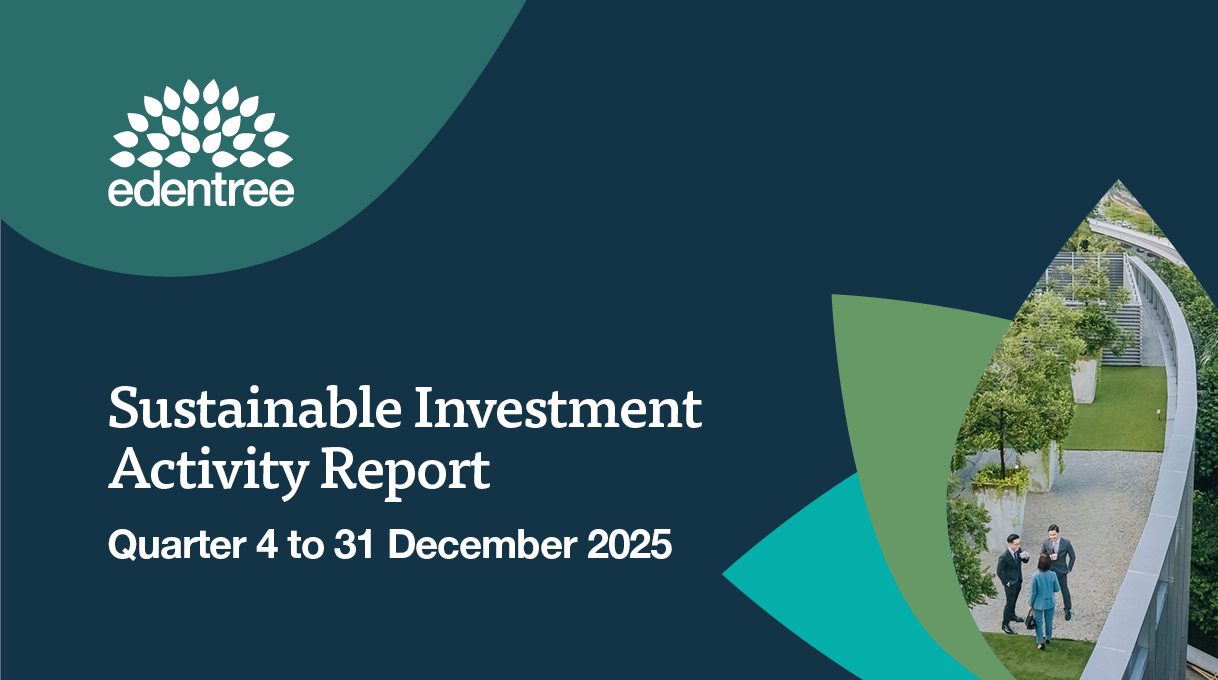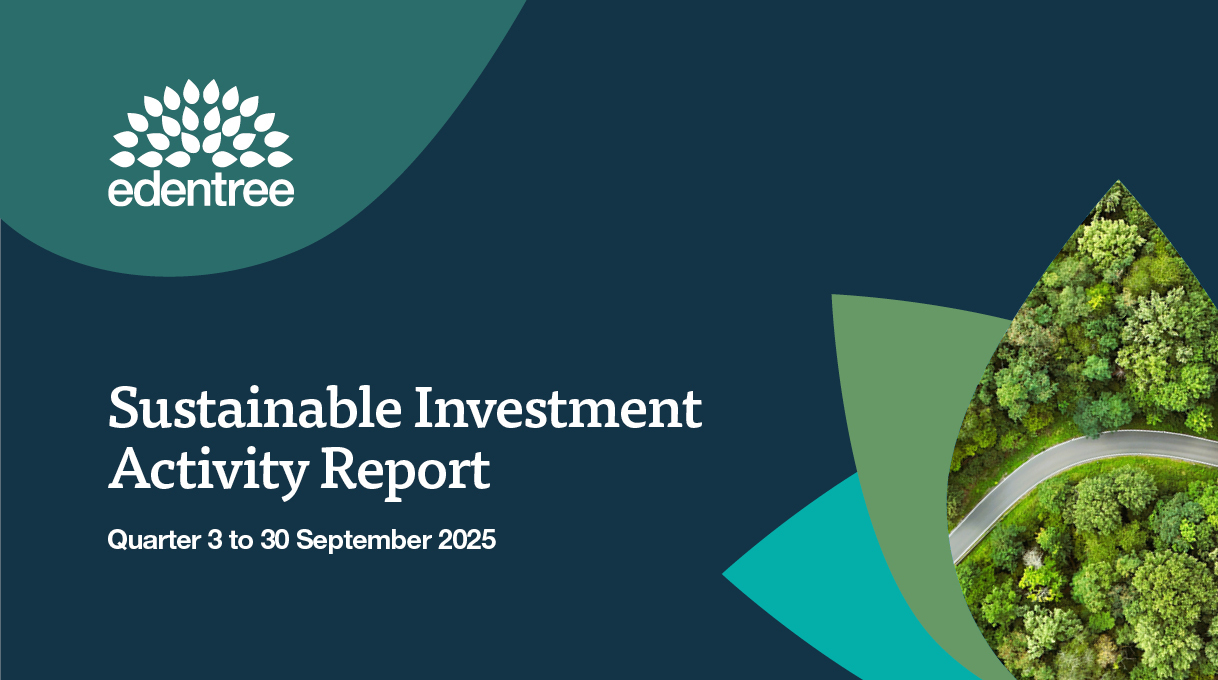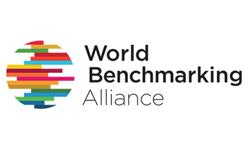Engaging for change
As active managers, engagement is a central component of our investment approach, and we use our voice as a catalyst to inspire positive social and environmental change. In the past three decades of engaging with companies in our portfolios, engagement has proved a powerful way of improving investee companies’ performance on a range of topics.

Engagement strategy
Our thematic priorities
Our thematic engagement priorities are focused on four areas where we seek to drive long-term change: A Just Climate Transition, Water Stress, Social & Financial Inclusion and Good Governance.
A Just Climate Transition
To achieve the Paris Goal of limiting global warming to 1.5°C, CO₂ emissions must fall by 45% by 2030, reaching net zero by 2050. At EdenTree we encourage all our holdings to set Science-Based Targets, and through our Climate Stewardship Plan, engage with the companies responsible for the majority of our financed emissions, seeking robust Climate Transition Plans. We are cognisant of the social impacts of the transition and are also committed to addressing the need for a just transition through this pillar.
Water Stress
Water is a finite resource, with a 40% shortfall in global freshwater supplies expected by 2030. This is a significant financial risk for companies as water stress affects production capacity, increases stranded asset risk and introduces reputational risk. At EdenTree we are particularly focused on addressing water sewage pollution in the UK, promoting positive water stewardship amongst our chemical companies, and supporting the phase-out of hazardous chemicals.
Social & Financial Inclusion
Inequality in income and wealth has been increasing for the past 40 years. Inequality is a systemic risk: it undermines social cohesion, erodes trust in institutions and fuels unrest. When we reduce inequality, everyone – including the companies we invest in – are better off. EdenTree play an active role in promoting inclusion, including through our work on diversity, responsible use of technology, and modern slavery.
Good Governance
Corporate governance is the system by which companies are directed and controlled for the long-term benefit of their shareholders. Good governance is rooted in transparency, accountability and trust, which fosters a culture of integrity and financial stability. These tenets are fundamental to serving as a responsible participant in the financial, societal and environmental systems companies operate in. Ultimately, good governance protects stakeholders, without whom companies would not have access to the capital, labour and natural resources offered by these systems.

Who we work with
The power of collaboration
We seek to collaborate with our clients, peers, policymakers and NGOs to further our impact. We do this by participating in industry forums, actively engaging with investee companies, regulators and policy makers, and publishing thought leadership, all with the intent of effecting change. Detailed below is a list of the initiatives we are involved in.
Our insights
Insights
Sustainable Investment Activity Report Q4 2025
This quarter, we announced plans to add SDR labels to all remaining unlabelled funds, moving us towards a fully labelled range. The report also details our engagement activity and proxy voting decisions.

Stewardship: A shared responsibility
As sustainable investors, we recognise our responsibility to all stakeholders, and this document demonstrates how we position stewardship as a central component of our investment approach.

Sustainable Investment Activity Report Q3 2025
This report details our meetings with our bank holdings on fossil fuel financing, continuing engagements on water use with chemical sector holdings and addressing the topic of human rights in AI.

Responsible Investment Activity Report Q2 2025
This report reviews a turbulent proxy season shaped by global shifts in corporate governance and investor voting behaviour, with highlights from our voting and engagement activities across key priorities.

Responsible Investment Activity Report Q1 2025
Amid rising geopolitical tensions and growing polarisation in sustainable investing, this report reaffirms our commitment to high standards and transparency, despite increasing “greenhushing”.

Responsible Investment Activity Report Q4 2024
This report highlights our sustainability priorities through targeted engagements on climate, waste, human rights in AI, and governance, alongside continued accountability through our voting activity.

Responsible Investment Activity Report Q3 2024
This quarter, we continued to engage on our thematic priorities to drive change on key sustainability issues, including the second engagement with our highest emitters under our Climate Stewardship Plan.

Responsible Investment Activity Report Q2 2024
In this report, it highlights the advancement with engagement themes and strengthened our voting strategy, including pre-declaring votes at key AGMs and using voting to escalate where needed.

Responsible Investment Activity Report Q1 2024
This report comes at a time of change for the UK asset management industry, with the FCA’s SDR and labelling rules promising to bring much-needed clarity to the sustainable investment market.

Responsible Investment Activity Report Q4 2023
This quarterly report highlights our latest research, engagement, and governance efforts across our managed funds, aligned with our core Responsible and Sustainable Investment pillars.

Responsible Investment Activity Report Q3 2023
This report shares news of our responsible investment research, engagement and governance activities across our managed Funds and strategies.













